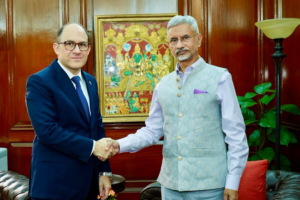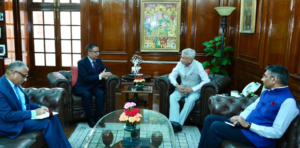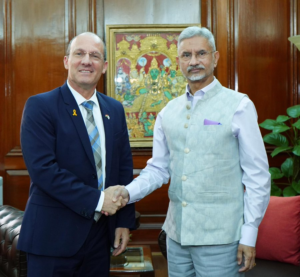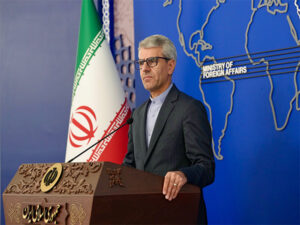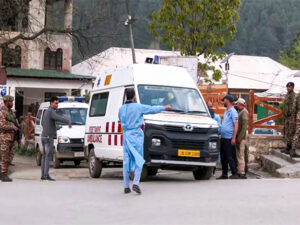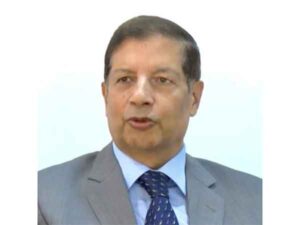Pakistani courts flooded with petitions challenging Feb 8 election results
Islamabad, Feb 11 (PTI) The courts in Pakistan have been flooded with petitions as candidates, mostly backed by jailed former prime minister Imran Khan’s Pakistan Tehreek-e-Insaf (PTI), challenged the results of Thursday’s general elections, alleging rigging.
Most of the petitions were filed in the Lahore High Court (LHC), while two PTI-backed candidates moved the Islamabad High Court (IHC) against the results, and at least three petitions were filed in the Sindh High Court (SHC).
The Election Commission is still to announce the full results of the polls.
Independents backed by Khan’s Pakistan Tehreek-e-Insaf (PTI) party won the lion’s share of 102 seats in the National Assembly (NA) in the election.
The group was followed by former prime minister Sharif’s Pakistan Muslim League-Nawaz (PML-N) with 74 seats, Pakistan Peoples Party (PPP) with 54, Muttahida Qaumi Movement (MQM) with 17 and 12 other seats going to smaller parties, as the result of 259 seats out of 265 was announced by the election commission.
The result of NA-88 was withheld by the ECP due to complaints of fraud and it would be announced after redressing the grievances of the aggrieved. It showed that only five results were pending.
The petitions in the LHC challenged the victories of PML-N supremo Nawaz Sharif and his daughter Maryam Nawaz; Istehkam-e-Pakistan Party (IPP) President Aleem Khan in different constituencies in Lahore.
A vast majority of those filing such challenges were PTI-backed independents, including high-profile politicians such as former Punjab chief minister Parvez Elahi and his wife Qaisera, former Khyber Pakhtunkhwa (KP) finance minister Taimoor Jhagra and ex-Khyber Pakhtunkhwa speaker Mahmood Jan, former Punjab health minister Dr Yasmin Rashid, as well as Usman Dar’s mother Rehana Dar.
In Lahore, the victories of former three-time prime minister Sharif, his daughter Maryam and former defence minister Khawaja Asif were challenged.
The petitioners claim that they were successful against their opponents as per Form 45, which is the primary source of election results at the lowest level, handed to them.
However, in their absence, their victories were allegedly turned into defeats in Form 47, which is a summary of Form 45 from each polling station.
The candidates have alleged collusion in the alteration of election results and demand that the results of Form 47 be prepared according to Form 45s.
Amir Zia, a Karachi-based senior political analyst, said that in 80 per cent of the seats, the results were what people had expected though in 20 per cent of the seats there were disputes.
But the main debate is on PML-N’s seats and the people are saying several of their candidates who were losing were declared winners overnight which is raising a lot of questions, he said.
On a question about who will form the government in Pakistan, he said whoever forms the government will be a minority government. There will be a lot of bargains.
“We can’t predict who will form the government,” he said.
Meanwhile, a petition has been filed in Pakistan’s Supreme Court to bind the elected independent candidates to join a political party within three days of the official notification of their victory.
PTI candidates contested as independents after the Supreme Court and the ECP said they could not use the party symbol, a cricket bat.
The petition, filed by Advocate Moulvi Iqbal Haider on Saturday, argued that part of the national or provincial assemblies as an independent member should be unfair, illegal, unconstitutional and contrary to the parliamentary form of governance.
Interestingly, Haider has a reputation for being a habitual litigant and had been barred from filing petitions in the Supreme Court in the past.
In the fresh petition, Haider highlighted that around 17,816 candidates participated in the February 8 general election, of which around 11,785 contested as independent candidates.
He urged the court to declare that assembly members elected as independent candidates are incompetent to participate in the process of reserved seat allocation unless they join a political party, the petitioner pleaded while citing Article 51 of the Constitution.
The article outlines the procedure for determining the number of National Assembly seats and the functioning of the house.

